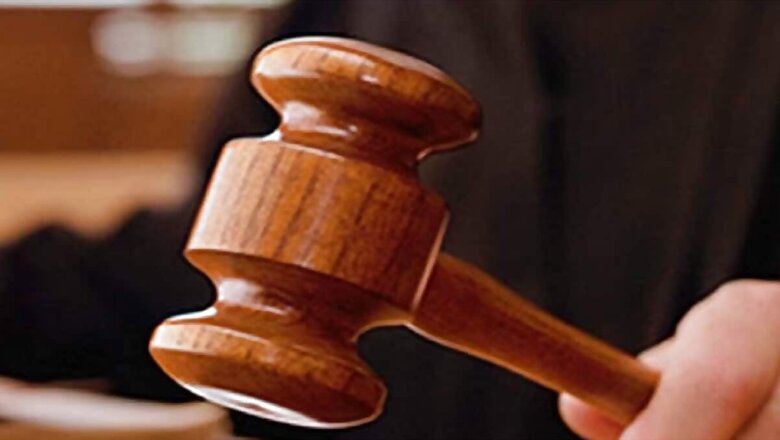
views
The Ministry of Home Affairs has cancelled the Foreign Contribution Regulation Act (FCRA) registration of the Centre for Policy Research (CPR). The policy think tank confirmed that it received the order for FCRA cancellation on January 10.
The ministry’s decision came 11 months after it suspended the FCRA license for CPR. Last year, on February 27, the MHA had suspended CPR’s FCRA registration on the grounds of violating the Act. The initial suspension, which was meant for 180 days, was eventually extended.
CENTRE’S ACCUSATIONS ON CPR
The Centre has accused CPR of violating the FCR Act by publishing current affairs programme, diverting funds to ‘anti-development project’ litigants and hampering India’s economic interest.
Sources in the government said that the policy think tank’s activities were in violation of Section 3 of the FCRA.
“CPR – an FCRA registered association – is engaged in production of current affairs programmes such as Overview on the CAQM (Commission of Air Quality Management) Act, 2021, policy challenges for the new government, etc. Publishing current affairs programme using foreign funding is prohibited under section 3 of the Act,” government officials said.
MHA officials accused the think tank of misusing foreign contributions to fund litigations including that of entities “involved in protests against development project including coal mines”.
The Centre’s earlier decision to suspend the registration had come after the Income Tax survey on CPR in September 2022. During its survey, the IT department had focused on CPR’s association with activists and lawyers spearheading protests in Chhattisgarh’s Hasdeo Arand region. The government said that the funds diverted by the think tank to these individuals and organization were received for “educational activities”.
“It was found that CPR has diverted foreign donation to Non-FCRA entity to fund protests and legal battles against development projects. Foreign funding was used to fund paralegals for filing litigations. Funds found to be used for litigation matters including cases against coal mines/plant,” sources in the government said.
They added that this diverting of funds for opposing developmental projects in court is not in tune with CPR’s FCRA registration.
The ministry also told the Delhi High Court that CPR was using its foreign funding for “undesirable purposes”. “Depositing foreign funds received under FCRA, in non-designated accounts, is a violation of FCRA,” a ministry official had said.
Meanwhile, CPR had also approached the court challenging the Income Tax department’s decision to withdraw the tax exemption granted to the think tank.
CPR functionaries said they are weighing their legal options after the latest order from MHA on FCRA registration.
CPR’S RESPONSE
President of Centre for Policy Research, Yamini Aiyar, termed the government’s decision to be taken “without any inquiry”.
Issuing a statement on the cancellation, Aiyar said that the basis of MHA’s decision is “incomprehensible” and “disproportionate”, adding that some of the reasons given by the ministry, challenge the “very basis of the functioning of a research institution” like that of CPR.
“This includes the publication on our website of policy reports emanating from our research being equated with current affairs programming,” she said.
The think tank said that it will continue to seek recourse in all the possible ways.
CPR, in its statement reiterated that it is in “complete compliance with the law, and has been cooperating fully and exhaustively at every step of the process”. “We remain steadfast in our belief that this matter will be resolved in line with constitutional values and guarantees,” Aiyar added.
The organization has argued that their operations in the last few months has been severely jeopardized in the aftermath of the government’s decision. In the high court, the policy think tank said that the decision taken by the MHA on FCRA ‘lacked inquiry’.
Meanwhile, senior Congress leader Shashi Tharoor reacted to the MHA’s decision and called it a “shame”. Taking to the microblogging site X, Tharoor wrote, “This is a shame. Our Government should realise that flourishing independent think-tanks add to India’s credibility among democracies abroad. Quite apart from the injustice to fine professionals and an excellent institution, this kind of vindictive behaviour towards @CPR_India will only discredit India internationally.”
WHAT IS FCRA?
In its definition, the Foreign Contribution Regulation Act (FCRA), 2010, is a law to combine regulating and prohibiting of “the acceptance and utilisation of foreign contribution or foreign hospitality by certain individuals or associations or companies”.
The Act aims to prevent acceptance and utilisation of foreign contribution or foreign hospitality for any activities detrimental to the national interest.
As per the government’s FCRA guidelines, all registered organisations are required to submit an online annual report comprising of income and expenditure statement, receipt and payment account, balance sheet, etc., for every financial year within nine months of the closure of the financial year.
Any entity, or “person”, can be a recipient of foreign funds as long as it has “a definite cultural, economic, educational, religious or social programme” and permission under FCRA rules from the Centre.
The law states that government should be content that the acceptance of foreign contributions do not affect the sovereignty and integrity of the nation, public interest, or, freedom or fairness of election to any Legislature, or friendly relations to any foreign state, harmony between religious, racial, social, linguistic or regional groups, castes or communities.
Amending the FCRA in 2020, the government said “the annual inflow of foreign contribution has almost doubled between the years 2010 and 2019… many recipients of foreign contribution have not utilised the same for the purpose for which they were registered or granted prior permission under the said Act.”




















Comments
0 comment